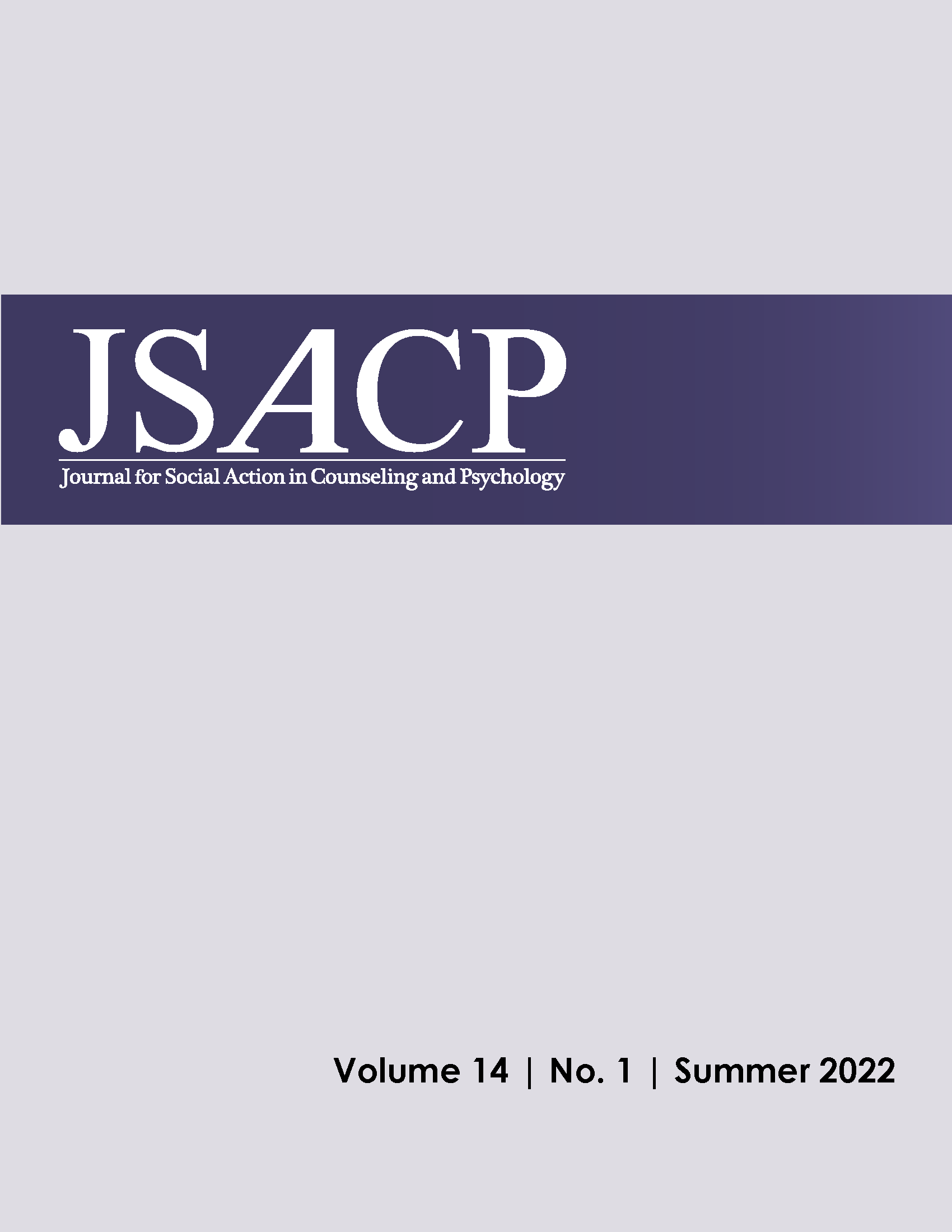Embodied Social Justice Learning: Considerations for Curriculum Development and Training in Counseling Programs
DOI:
https://doi.org/10.33043/JSACP.14.1.77-93Keywords:
social justice curriculum, counseling programs, embodiment, service-learning, liberationAbstract
Social justice curriculum development continues to be an evolving area in the educational and professional training of counselors and counseling psychologists. While many programs facilitate trainees’ exploration of social justice knowledge through infusion into multicultural counseling courses, there is a growing trend in counseling curriculum development to provide students with specific social justice-oriented awareness and approaches to advocacy. This article describes the development of two-course sequence in a mental health counseling program where trainees are introduced to multicultural and social justice content pedagogically organized around liberation and critical history frameworks. The theoretical frameworks, process of implementing specific curricular activities with a focus on a culminating service-learning experience, and strategies for enhancing social justice and advocacy curriculum development through an embodied social justice learning curricular approach are discussed. This article aims to advance curriculum development by encouraging faculty in counseling programs to consider implementing curricular activities that are guided by social justice embodiments and critical-liberatory frameworks to facilitate trainees’ social justice knowledge and their approach to advocacy in their roles as helping professionals.
Downloads
Downloads
Published
How to Cite
Issue
Section
License
Copyright (c) 2022 Collette Chapman-Hilliard, Brean'a Parker

This work is licensed under a Creative Commons Attribution-NonCommercial-NoDerivatives 4.0 International License.
By submitting to JSACP, the author(s) agree to the terms of the Author Agreement. Beginning in 2018, all authors retain copyrights associated with their article contributions and agree to make such contributions available under a Creative Commons Attribution-NonCommercial-NoDerivatives 4.0 International license upon publication in JSACP. Copyrights to articles published prior to 2018 have been transferred from the authors to JSACP.









